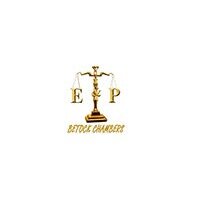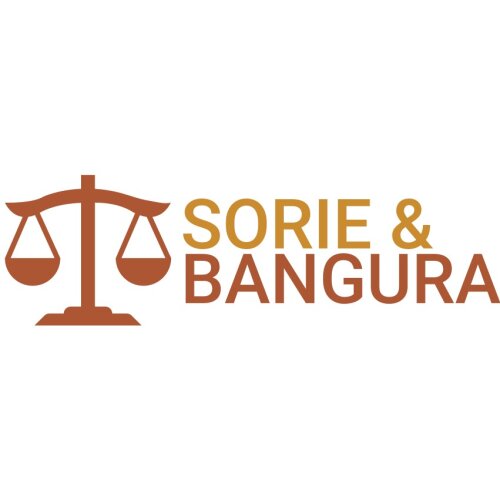Best Business Lawyers in Freetown
Share your needs with us, get contacted by law firms.
Free. Takes 2 min.
List of the best lawyers in Freetown, Sierra Leone
About Business Law in Freetown, Sierra Leone
Freetown, the bustling capital of Sierra Leone, is a hub for business activities in the country. It boasts a dynamic commercial environment with thriving markets, bustling trade, and the development of various enterprises. Business law in Freetown is governed by a combination of local legislation, customary laws, and international agreements to which Sierra Leone is a party. It encompasses various areas such as contracts, employment, real estate, taxation, and corporate governance. The city offers numerous opportunities for entrepreneurship and business development, but navigating the legal landscape requires a sound understanding of the local regulatory framework.
Why You May Need a Lawyer
There are several situations in which individuals or businesses may require legal assistance in Freetown. These include:
- Starting a business: Entrepreneurs often require guidance on the legal requirements for business registration, obtaining permits, and complying with zoning laws.
- Contractual matters: Negotiating, drafting, and reviewing contracts to ensure they protect your interests and are enforceable under the law.
- Employment issues: Handling disputes or formalizing agreements involving employees, such as employment contracts, benefits, and terminations.
- Real estate transactions: Buying or leasing property requires knowledge of the applicable laws to avoid disputes and ensure a smooth transaction.
- Dispute resolution: Whether resolving conflicts with partners, clients, or suppliers, legal advice is crucial in mediation or litigation processes.
- Compliance and regulation: Businesses must adhere to environmental, health, safety, and industry-specific regulations to avoid penalties.
Local Laws Overview
Business activities in Freetown are subject to several key local laws and regulatory frameworks, including:
- The Companies Act: Governs the formation, operation, and dissolution of companies in Sierra Leone.
- The Bankruptcy Act: Sets out the legal framework for resolving insolvency and distributing assets to creditors.
- The Investment Promotion Act: Encourages foreign investment by providing incentives and protections for investors.
- The Income Tax Act: Outlines the taxation obligations for businesses operating in Sierra Leone, including rates and filing requirements.
- Labor Laws: Regulate the employer-employee relationship, ensuring fair working conditions and protecting workers' rights.
- Environmental Laws: Require businesses to comply with regulations to protect environmental resources.
Frequently Asked Questions
What are the steps to register a business in Freetown?
To register a business, you need to choose a business structure, reserve a company name, submit incorporation documents to the Corporate Affairs Commission, and obtain a tax identification number.
Do I need a business license to operate in Freetown?
Yes, various business activities require specific licenses and permits. You may need to contact the appropriate municipal or governmental authority to determine the applicable requirements.
What taxes must businesses in Freetown pay?
Businesses typically must pay corporate income tax, value-added tax (VAT), and pay-as-you-earn (PAYE) if they have employees. Other taxes may apply depending on the sector.
How can I protect my business's intellectual property?
You can protect intellectual property through trademarks, copyrights, and patents. Registration with the Sierra Leone Intellectual Property Office is recommended for legal protection.
What should I do if I have a dispute with a business partner?
Consider negotiating a resolution, seeking mediation, or, if necessary, filing a lawsuit in court. Legal advice can help determine the best course of action.
Is it necessary to have a local partner to start a business in Freetown?
While not always legally required, partnering with a local entity can provide valuable insights and facilitate easier navigation of local laws and regulations.
What employment laws should my business comply with?
Your business must abide by labor laws regarding employee rights, minimum wage, work hours, leave, and termination procedures.
Are there specific restrictions on foreign investment?
Sierra Leone encourages foreign investment, but certain sectors may have restrictions or require joint ventures with local entities.
How do I handle a contract breach?
Legal advice is crucial in contract breaches. Options include negotiating a settlement, seeking arbitration or mediation, or pursuing litigation.
What resources are available for starting a small business?
Without specific details on governmental programs, you can consult local chambers of commerce and business development agencies for guidance and support.
Additional Resources
Here are some helpful resources for business legal advice in Freetown:
- Corporate Affairs Commission: Assists with company registration and compliance.
- Sierra Leone Chamber of Commerce: Provides resources and networking opportunities for businesses.
- Invest Sierra Leone: Offers guidance and assistance to foreign investors.
- Legal Aid Board: Provides legal assistance and advice, particularly for small businesses and individuals in need.
Next Steps
If you need legal assistance in business matters, it is advisable to:
- Identify the specific legal issue or requirement you are facing.
- Consult with a qualified business lawyer familiar with Sierra Leone's legal system.
- Gather all relevant documentation prior to seeking legal advice.
- Schedule a meeting or consultation with a legal expert to discuss your needs and potential solutions.
- Follow the legal guidance provided to ensure compliance and protect your business interests.
Taking these steps will help ensure you navigate the legal aspects of business effectively and efficiently in Freetown, Sierra Leone.
Lawzana helps you find the best lawyers and law firms in Freetown through a curated and pre-screened list of qualified legal professionals. Our platform offers rankings and detailed profiles of attorneys and law firms, allowing you to compare based on practice areas, including Business, experience, and client feedback.
Each profile includes a description of the firm's areas of practice, client reviews, team members and partners, year of establishment, spoken languages, office locations, contact information, social media presence, and any published articles or resources. Most firms on our platform speak English and are experienced in both local and international legal matters.
Get a quote from top-rated law firms in Freetown, Sierra Leone — quickly, securely, and without unnecessary hassle.
Disclaimer:
The information provided on this page is for general informational purposes only and does not constitute legal advice. While we strive to ensure the accuracy and relevance of the content, legal information may change over time, and interpretations of the law can vary. You should always consult with a qualified legal professional for advice specific to your situation.
We disclaim all liability for actions taken or not taken based on the content of this page. If you believe any information is incorrect or outdated, please contact us, and we will review and update it where appropriate.
Browse business law firms by service in Freetown, Sierra Leone
Freetown, Sierra Leone Attorneys in related practice areas.












